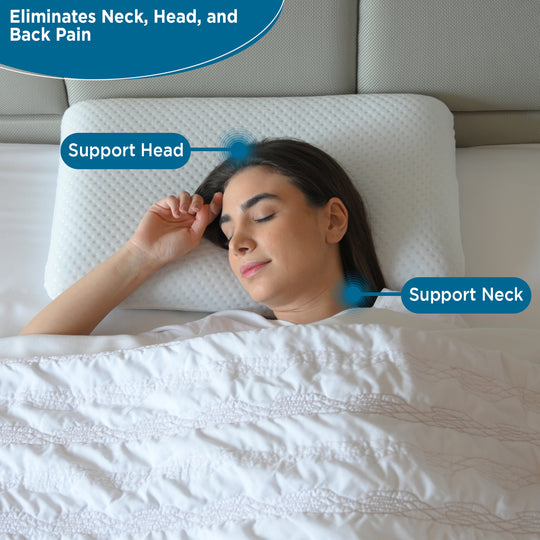Sleep anxiety is a fear or uneasiness about falling asleep. Sleep anxiety, also known as somniphobia or sleep phobia, is defined by a fear of falling asleep at night.
Some argue that sleep fear developed due to the fact that prior to the development of modern society, humans were most vulnerable while sleeping. However, it is often an unwarranted fear that has a negative impact on our health and well-being.
Sleep and mental health conditions, such as anxiety, are often linked together. If you have an anxiety problem, you may struggle to fall or stay asleep. Similarly, if you have a sleep issue, you can feel anxiety or panic before going to bed because you are concerned about not getting enough sleep.
Symptoms of Sleep Anxiety
Symptoms of sleep anxiety vary from person to person. When you can’t sleep at night due to sleep anxiety, you can feel these behavioral changes, including:
- A persistent sense of worry or apprehension
- Restlessness
- Feeling fearful
- Fast heart rate
- Sweating
- Tense muscles
- Tossing and turning
- Avoiding sleep
- Inability to feel comfortable in bed
Some people also experience nighttime panic attacks. A panic attack is a brief, powerful flash of great dread. Nocturnal panic attacks occur only at night and frequently awaken you from sleep.
Causes of Sleep Anxiety
It is totally okay to feel anxious or worried in dangerous situations. Stress and worry drive our bodies to release hormones that help us react quickly and avoid injury. However, if you have constant anxiety, you could be constantly stressed or worried. You may be afraid of everyday situations, such as driving to work or falling asleep.
Chronically high levels of these hormones, particularly before sleep, might make it difficult for your body to relax. You may have difficulty falling asleep. If you fall asleep, you may wake up during the night with stressful or anxious thoughts and be unable to get back again.
Anxiety and insomnia can also be caused by a thyroid hormone deficiency, which slows your metabolism.
How to Manage Sleep Anxiety
Sleep hygiene is really important to get quality sleep at night. You do not need to have sleep anxiety to practice excellent sleep hygiene; it can help everyone sleep better. It is usually a good idea to work on your sleep hygiene with your CBT. Here are some tips to enhance your sleep hygiene:
- Create the best sleeping environment possible: Make sure your room is dark, quiet, and cool at night. Only use your bed for sex and sleep, so it is not associated with stressful activities such as work.
- Avoid caffeine later in the day: Caffeine can cause anxiety, and drinking it too late in the day may keep you awake at night. Caffeine can take anywhere from six to 10 hours to leave your system, although it varies by individual.
- Do not stay in bed: Staying in bed may exacerbate your anxiety about falling asleep. If you don't fall asleep within 15 minutes, do something relaxing before returning to try again later.
- Create a peaceful sleep routine: Starting a calming routine about an hour before bedtime will help your mind and body prepare for sleep. You may try taking a warm bath or listening to relaxing music.
- Try relaxation techniques: You can try exercises such as breathing exercises, progressive muscle relaxation, and meditation to help clear your thoughts and relieve stress in your body.
- Maintain a sleep schedule: Try to go to bed and get up at the same time every day to establish a consistent sleep pattern.
If you have been diagnosed with anxiety, your doctor may prescribe anxiety drugs. Anxiety medication may assist to alleviate your symptoms of stress and concern, as well as sleep anxiety.
Conclusion
If you have sleep anxiety, you may be very concerned or worried about how you will fall asleep or stay asleep, and if you will get quality sleep at night or not. Anxiety about sleep frequently can make your sleep experience worse, resulting in a never ending cycle of anxiety and missed sleep, followed by lost sleep and anxiety.
If you already have a sleep disorder, such as insomnia, or a mental health condition, such as generalized anxiety disorder, you may be more susceptible to developing sleep anxiety. If you believe sleep anxiety is interfering with your sleep or awake time, consult a healthcare provider. They may be able to prescribe sleep hygiene treatments, lifestyle adjustments, or therapy.
If your current cushion makes you uncomfortable, you can try switching to a memory foam pillow. It has many advantages over traditional pillows and is ideal for snoring, asthma, allergies, insomnia, neck pain, and migraines. This pillow's fabric provides a pleasant, peaceful sleep experience and leaves you feeling energized.











